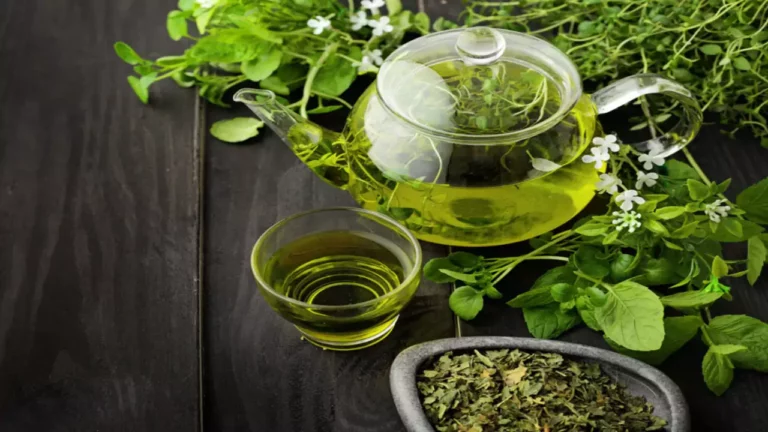Can Slow-Cooked Meals Reduce GERD? Here’s What You Need to Know! 🍲
Hey there! If you’re dealing with GERD (Gastroesophageal reflux disease), you know how uncomfortable and frustrating it can be. The constant heartburn, regurgitation, and bloating can really take a toll on your day-to-day life. As someone who specializes in digestive health, I get asked a lot about how diet can affect GERD symptoms, and one question that keeps popping up is, “Can slow-cooked meals reduce GERD?” Well, let’s dig into that and see what the deal is!
Before we dive into slow cooking specifics, let me tell you—diet plays a HUGE role in managing GERD. If you’ve ever felt like certain foods just don’t sit right, you’re not imagining it. Certain foods can trigger reflux symptoms, while others can calm things down. Now, could slow-cooked meals be the secret weapon in your GERD-fighting arsenal? Let’s find out!
Understanding GERD and How It Affects Your Body

GERD is basically when stomach acid or bile flows backward into the esophagus, causing all sorts of discomfort. Think heartburn, sour taste in your mouth, chest pain, or even difficulty swallowing. It’s more than just an occasional inconvenience—it can be a chronic condition that affects your quality of life.
Diet plays a massive role here. Foods that are rich in fat, super spicy, or acidic tend to trigger acid reflux. And this is where slow-cooked meals come in—they could be a game-changer for many GERD sufferers. But how, exactly? Let me break it down for you.
Can Slow-Cooked Meals Reduce GERD? The Benefits Explained 🍽️

So, let’s get right to it. Can slow-cooked meals reduce GERD? Here’s why they might just help you out.
1. Slow Cooking = Tender, Easy-to-Digest Foods
You know how some meats and veggies can be a real pain to chew or digest? Tough cuts of meat or fibrous veggies can irritate your stomach, especially if you already have GERD. The beauty of slow cooking is that it breaks down these tougher foods, making them way easier on your digestive system. When things are tender and easy to digest, your stomach doesn’t have to work as hard, which can significantly reduce the chances of acid reflux.
2. Slow Cooking Helps You Control Fat Content
One of the biggest culprits of GERD flare-ups is fatty foods. Fatty meals can relax the lower esophageal sphincter (LES), allowing stomach acid to sneak back into the esophagus. By slow-cooking, you can control the fat content in your meals and focus on leaner meats, like chicken, turkey, and fish. You can also make healthier sides with vegetables and whole grains, which are gentler on the stomach.
3. Minimize Spicy Ingredients
Let’s be real—spicy foods are a favorite for many people, but they can wreak havoc on GERD sufferers. The great thing about slow cooking is that it allows you to experiment with flavors while keeping things mild. You can swap out spicy peppers for gentler herbs like thyme, rosemary, or parsley. Plus, slow cooking helps balance out the flavors, making the food delicious without the risk of triggering reflux.
Troubleshooting Common Issues When Cooking Slow-Cooked Meals for GERD 🛠️

Even though slow-cooked meals offer a ton of benefits, there are some bumps along the way that can trip you up. Let’s troubleshoot common issues you might encounter:
1. Over-Cooking Vegetables
Slow cooking is great for tenderizing meats, but some veggies can turn to mush if you cook them for too long. I’m talking about soft vegetables like zucchini or spinach. If you don’t want a pot full of mushy greens, add them in the last 30 minutes of cooking. This ensures they stay tender without losing their texture.
2. Inaccurate Temperature Control
Some slow cookers can be a bit tricky when it comes to maintaining a consistent temperature. You might end up with undercooked or overcooked food. To avoid this, use a high-quality slow cooker and double-check the recommended cooking times for your recipes. A food thermometer can also come in handy to make sure your meals are cooked properly.
3. Recipe Modifications for GERD-Sensitive Ingredients
Let’s face it—certain ingredients like onions and garlic can be major GERD triggers. But don’t worry! Slow cooking gives you the flexibility to adjust recipes according to your needs. You can swap out onions for shallots or chives for a milder flavor. Small changes can make a big difference!
Case Studies / Success Stories 💡

Let me tell you about a couple of success stories I’ve seen. These real-life examples will show you just how effective slow cooking can be for GERD sufferers:
Case Study 1: Sarah’s Story – A Healthier GERD Management Plan
Sarah, a 35-year-old professional with chronic GERD, struggled to find a diet that could alleviate her symptoms without sacrificing flavor. After incorporating slow-cooked meals into her routine, she noticed a significant reduction in reflux episodes. Her favorite recipe? A slow-cooked chicken and vegetable stew with low-fat broth, seasoned with gentle herbs like thyme and rosemary. After a few weeks, Sarah reported fewer flare-ups, a reduction in bloating, and an overall improvement in her digestion.
Case Study 2: John’s Journey – Reversing GERD with Slow-Cooked Meals
John, a 50-year-old man who had been managing GERD with medications, decided to overhaul his diet after struggling with side effects from his medication. By switching to slow-cooked meals like lean beef and vegetable soups, John found that his symptoms became more manageable. He also experienced weight loss, which is another critical factor in managing GERD. John’s story highlights the power of diet in controlling acid reflux and improving quality of life.
Key Takeaways / Summary 📌
In conclusion, slow-cooked meals can be a helpful addition to the diet of those managing GERD. They offer numerous benefits such as:
- Tenderizing tough foods for easier digestion
- Reducing the fat content of meals
- Allowing for customization to avoid GERD triggers like spicy and acidic ingredients
While there may be some challenges, such as over-cooking vegetables or managing ingredient substitutions, these can be easily resolved with some preparation and experimentation.
5 FAQs About Slow-Cooked Meals and GERD 🔍
1. Can slow-cooked meals completely cure GERD?
While slow-cooked meals can help manage GERD symptoms, they are not a cure. A balanced diet, along with lifestyle changes, is crucial for long-term GERD management.
2. What are some GERD-friendly slow-cooked meals?
Some options include chicken with vegetables, lean beef stews, and lentil soups. You can use low-fat broths and mild seasonings for flavor without triggering symptoms.
3. Can I still enjoy spicy foods with GERD?
If spicy foods are a trigger for you, slow cooking can help reduce their intensity. However, it’s best to avoid very spicy ingredients and opt for milder herbs.
4. How can I make slow-cooked meals more GERD-friendly?
Focus on lean meats, gentle herbs, and vegetables that are low in acidity. Avoid adding trigger foods like garlic, onions, or fried ingredients.
5. Is slow cooking the best way to prepare meals for GERD?
It’s definitely a great option! The slow-cooking process helps make foods more digestible and allows you to control the ingredients more easily.
Appendix
References
Disclaimer
The information provided in this article is for educational purposes only and should not be considered medical advice. Always consult with a healthcare professional before making any significant changes to your diet or lifestyle.
Call to Action
If you’re ready to take control of your GERD symptoms and want to explore more delicious slow-cooked meals, check out our recipe collection for more GERD-friendly options!

Camellia Wulansari is a dedicated Medical Assistant at a local clinic and a passionate health writer at Healthusias.com. With years of hands-on experience in patient care and a deep interest in preventive medicine, she bridges the gap between clinical knowledge and accessible health information. Camellia specializes in writing about digestive health, chronic conditions like GERD and hypertension, respiratory issues, and autoimmune diseases, aiming to empower readers with practical, easy-to-understand insights. When she’s not assisting patients or writing, you’ll find her enjoying quiet mornings with coffee and a medical journal in hand—or jamming to her favorite metal band, Lamb of God.







